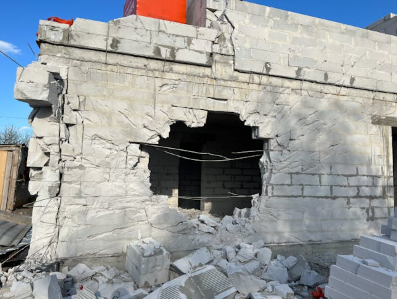A Simmering Standoff: Escalating Tensions Between Iran and Israel
The Middle East finds itself once again on the precipice of conflict as tensions soar between Iran and Israel. On April 19, 2024, Iran announced it had successfully shot down drones targeting a military facility in its central Isfahan province. While Iran has not officially blamed any nation, the United States suspects the drones were Israeli, further stoking the flames of an already volatile relationship.
This recent incident is just the latest chapter in a long and complex history of animosity between the two countries. Iran, a nation with a Shi’ite-majority government, views Israel as an expansionist threat and a key ally of the United States, which it considers an oppressive force in the region. Israel, on the other hand, views Iran’s nuclear program with deep suspicion, fearing it could lead to the development of atomic weapons that could threaten its very existence.
A Chain Reaction of Attacks
The drone incident in Iran follows a series of tit-for-tat attacks that have pushed the region closer to the brink. On April 13, Iran launched a barrage of missiles and drones targeting Israeli infrastructure in retaliation for a suspected Israeli airstrike on an Iranian diplomatic compound in Damascus, Syria. This attack, which reportedly killed two Iranian brigadier generals, marked a significant escalation as it targeted Iranian personnel outside its own borders.
The Shadow of the Nuclear Deal
The recent tensions also unfold against the faltering Joint Comprehensive Plan of Action (JCPOA), also known as the Iran nuclear deal—this 2015 agreement aimed to curb Iran’s nuclear program in exchange for the lifting of international sanctions. However, the deal unraveled in 2018 when the Trump administration withdrew the United States from the agreement and reimpose sanctions. Iran has since gradually rolled back its commitments under the JCPOA, raising concerns about its nuclear ambitions.
The International Community’s Response
The international community has expressed deep concern about the rising tensions between Iran and Israel. The United Nations Security Council has called for both sides to exercise restraint and avoid further escalation. However, the deep divisions in the Security Council, particularly between the US and Russia, make it difficult to take any meaningful collective action.
Possible Scenarios Moving Forward
The future trajectory of the Iran-Israel standoff remains uncertain. Several potential scenarios could unfold:
- Limited Retaliation: Iran might choose a measured response to the drone attack, focusing on diplomatic channels and international pressure to deter further Israeli actions.
- Full-Blown Conflict: A more aggressive response from Iran, potentially involving missile strikes against Israeli targets, could trigger a full-blown military confrontation. This scenario would have devastating consequences for the entire region, leading to widespread casualties and economic disruption.
- Backdoor Diplomacy: Backchannel negotiations between Iran and Israel, possibly facilitated by a third-party mediator, could de-escalate tensions. However, deep mistrust and the complex geopolitical landscape make such a scenario challenging.
The Stakes Are High
The current situation between Iran and Israel carries significant risks for the entire Middle East. A military escalation could destabilize the region further, potentially drawing in other countries and leading to a wider conflict. The potential for an accidental escalation due to miscalculations or misunderstandings is also a major concern.
The Need for De-escalation
De-escalating tensions is a critical task for the international community. This includes calling both Israel and Iran to use moderation and refrain from taking any steps that would incite more violence. Furthermore, by addressing fundamental concerns on both sides, restoring the Iran nuclear deal could offer a way toward a more peaceful outcome.
All sides involved in the Iran-Israel dispute must remain committed to finding a diplomatic settlement. The ability of the international community to avert a catastrophic conflict will determine the stability and security of the Middle East in the future.
